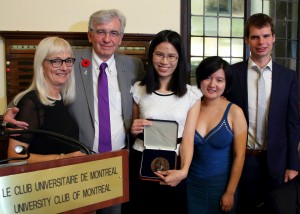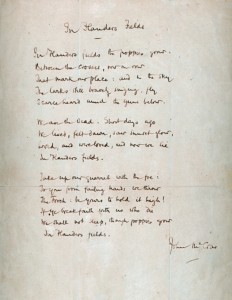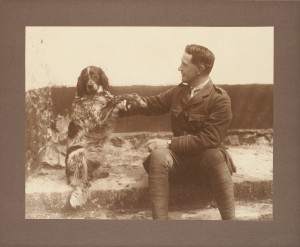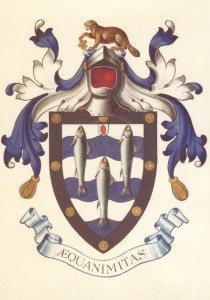
Pam and Rolando Del Maestro with Steph A. Pang (holding medal), Zhuyin Xu, and Christian Dabrowski. Photo: Owen Egan.
We are happy to announce that the winning essays from this year’s Pam and Rolando Del Maestro William Osler Medical Students Essay Awards are now available on our website, along with reflective pieces written by the students on their research experience.
First place went to Steph A. Pang for her essay entitled, “Man and his Health Pavilion: An Architectural Reinterpretation of the Patient-Doctor Relationship.” She was mentored by Prof. Annmarie Adams of the McGill School of Architecture and the Osler’s Library’s Board of Curators. She was presented with the Osler Library Board of Curators’ Medal during the Osler Banquet hosted by the McGill Osler Society on November 4.
Second place was awarded to Zhuyin Xu for her essay, “Diffusion of Medical Innovations: Minimally Invasive Surgery in China,” written under the mentorship of Prof. Thomas Schlich of the Department of Social Studies of Medicine.
Third place went to Christian Dabrowski for his essay, “Between Commitment and Contentment: the Story of Norman Bethune in Montreal.” He was mentored by Dr. Nicholas Whitfield of the Department of Social Studies of Medicine.
Congratulations to this year’s winners!
The Pam and Rolando William Osler Medical Students Essay Contest gives undergraduate medical students the opportunity to explore any theme of interest to them in the history, social studies, sociology, ethics, and humanities of the health sciences. It also provides them with the chance to be mentored by an expert in their topic drawn from the Library’s Board of Curators or elsewhere to complete their project, and to use the rich resources of the Osler Library and other libraries at McGill.To find out more about the contest, please visit our informational page.




